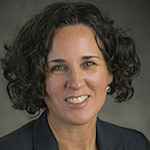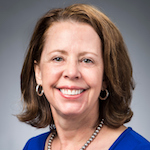An engaging classroom discussion can be a beautiful thing—both a vital part of the learning process and a microcosm of the way we hope democracy functions.
Yet a high-quality discussion doesn’t just happen, says UW–Madison educational researcher Paula McAvoy. It needs structure and planning.
“As faculty and academic staff members, we often try to improve writing skills in our classes, but it is just as important to think of discussion as a skill that needs to be carefully developed,” McAvoy says.


The Discussion Project, a new professional development opportunity beginning this fall at UW–Madison, addresses that goal. It is intended to help UW faculty and academic staff members both facilitate high-quality classroom discussions and prepare their students to participate in them, says McAvoy, the project’s director and primary instructor.
Diana HessDrawing upon the most recent research, the six sessions will cover, among other things, how to get students talking, how to set the right climate for an inclusive discussion, and how to negotiate common challenges and ethical issues that might arise.
“Research shows that classroom discussion, when done well, improves student retention, and students report having a more positive learning experience,” McAvoy says. “A high-quality discussion also helps students understand how to talk across our different points of view, an important part of learning to live in a democracy. We want to provide faculty members with explicit skills to get these positive outcomes.”
McAvoy, the program director for the Center for Ethics and Education, is developing and implementing The Discussion Project for the School of Education, in collaboration with Dean Diana Hess. The two co-authored the 2015 award-winning book The Political Classroom: Evidence and Ethics in Democratic Education.
“We often try to improve writing skills in our classes, but it is just as important to think of discussion as a skill that needs to be carefully developed.” — Paula McAvoy
Hess says the primary purpose of The Discussion Project is to improve the quality of classroom discussions across the board, regardless of the discipline or whether a topic is considered sensitive, controversial or political. Yet the project, by its very nature, also should aid the university’s efforts at ensuring a welcoming and inclusive learning environment, she says.
It is one of several campus initiatives that aim to improve the experiences of students of color and other under-represented students.
“The project is based on the idea that having students participate in high-quality discussions should, in and of itself, produce some of the climate outcomes we’re aiming for,” Hess says. “Students will feel they’re learning from their peers, that they’re included in the class, that their ideas and opinions matter. Those are things we want to happen regardless of the subject.”
The program will be offered in both the 2017-18 fall and spring semesters. Any faculty or staff member who teaches anywhere on campus can apply.
The ideal candidate would be teaching a course with fewer than 50 students, McAvoy says. At this point, graduate students are not eligible to apply, although McAvoy will be testing the curriculum on graduate students over the summer in a pilot program.
“The project is based on the idea that having students participate in high-quality discussions should, in and of itself, produce some of the climate outcomes we’re aiming for.” — Diana Hess
Applications for the fall cohort are due by May 22. Up to 30 participants will be selected. The first two sessions of the fall cohort will meet in August before classes start.
Major funding for the first two cohorts is being provided by the office of Provost Sarah Mangelsdorf, with additional support from the School of Education and the Center for Ethics and Education. Hess and McAvoy are seeking outside foundation support for future cohorts.
“Discussion is such an important pedagogical strategy,” Hess says. “What makes this project unusual is that it’s a multi-session professional development program, not a one-shot workshop. It’s spread out over months, carefully sequenced, and based on research.”
The project itself will serve as an ongoing research effort, with participants helping McAvoy and Hess continuously fine tune the curriculum so that other teaching institutions can benefit from what is learned.
By Doug Erickson
– See more at: http://news.wisc.edu/campus-project-aims-to-create-engaging-welcoming-classroom-discussions/#sthash.X6zKcgtd.dpuf